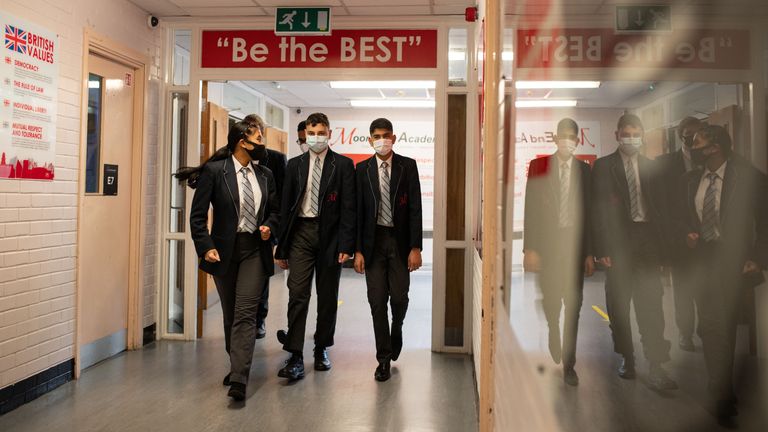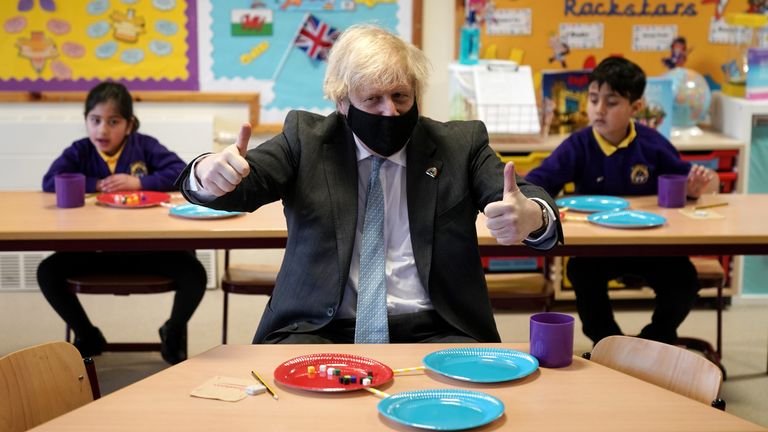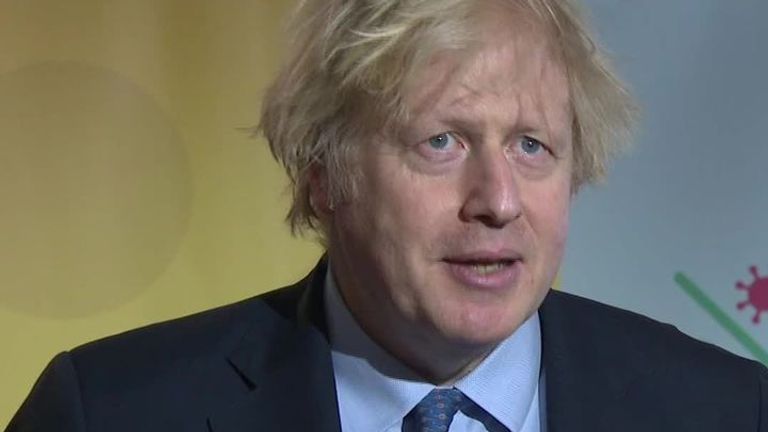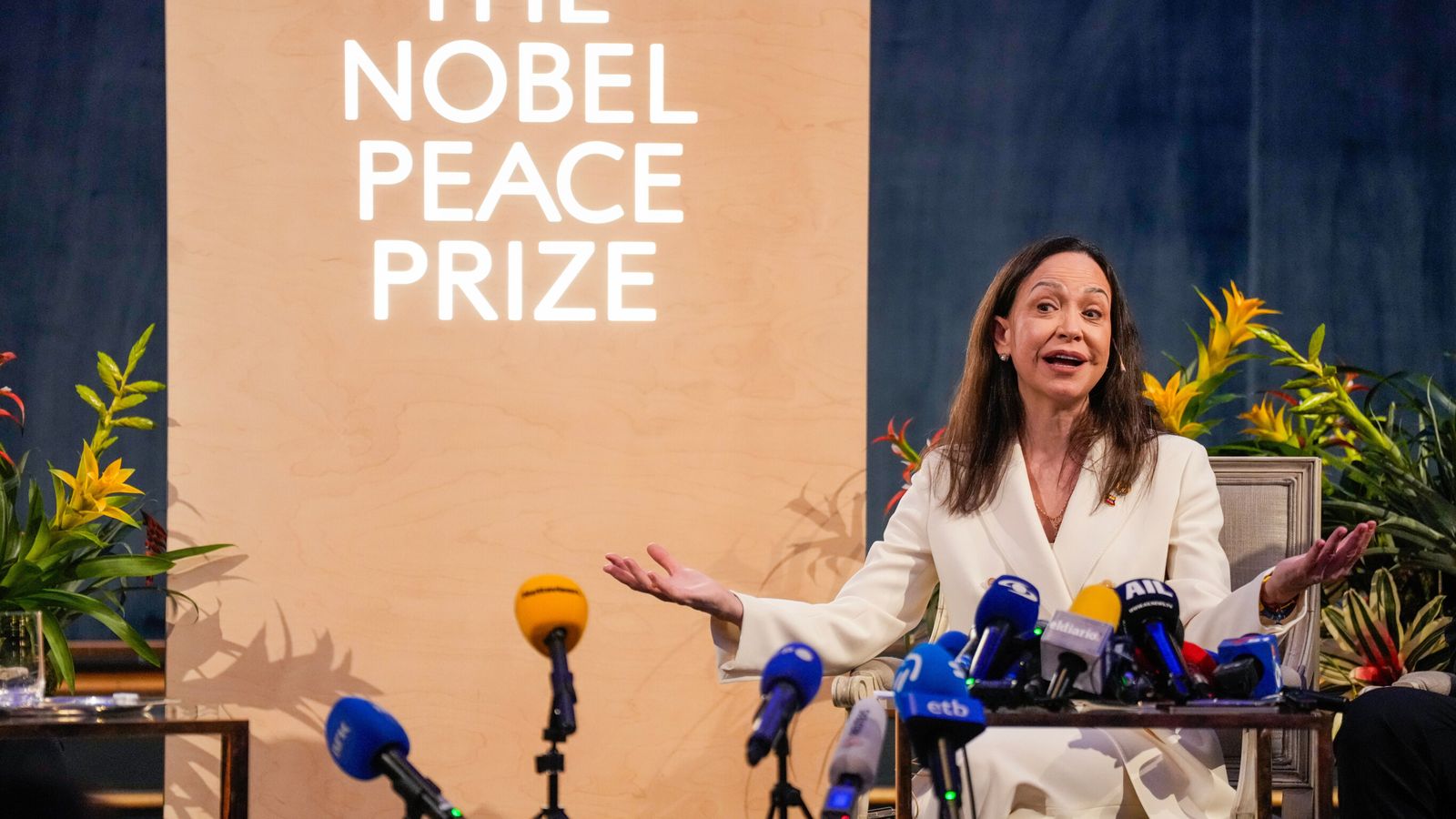Pupils in England are beginning to return to school this morning after months of remote learning under the first step to ease COVID-19 restrictions.
All children will be able to head back into the classroom, but secondary schools can stagger the return of students over the week to allow for mass testing.
Secondary school pupils will be asked to take three voluntary COVID-19 tests on site and one at home over the first fortnight – before being sent home-testing kits to do twice a week.
The Department for Education (DfE) is advising secondary school students to wear face coverings wherever social distancing cannot be maintained, including in the classroom.
But primary school children are not being asked to take COVID-19 tests or wear face masks on their return.
It comes as education secretary Gavin Williamson said that longer school days, shorter summer holidays and five-term years are all options under consideration to help pupils catch up on lost learning.
He told Sky News that the government is looking at a “whole range of different” proposals to help children amid the pandemic.
“We’re looking at holidays, we’re looking at lengthening the school day, we’re looking at a whole range of measures,” he said.
Meanwhile, Labour is calling for catch-up breakfast clubs before school to help children recover from 109 days of lost face-to-face learning.
Leader Sir Keir Starmer and shadow education secretary Kate Green will prepare to kick-start a “Bright Future Taskforce” today during a school visit in Dagenham, east London, with the aim of delivering a long-term strategy for children’s recovery from the pandemic.
Pupils in England, except children of key workers and vulnerable pupils, have been learning remotely since the start of lockdown in January.
Prime Minister Boris Johnson said on Sunday that there were dangers involved in keeping classrooms shut for too long when asked about the risks of schools returning.
“I think the risk is actually in not going back to school tomorrow given all the suffering, all the loss of learning we have seen,” he said.
“I do think we are ready, I think people want to go back, they feel it, they feel the need for it.”
Amanda Spielman, England’s chief schools inspector, expressed concern about eating disorders and self-harming among some children after she said pupils had endured “boredom, loneliness, misery and anxiety” during two months of home-learning.
The government has introduced asymptomatic COVID tests for secondary school and college pupils – as well as tougher measures around face masks – ahead of the full reopening.
But school leaders have been struggling to get parents’ permission for the voluntary tests, and some are concerned that pupils will refuse to wear face coverings in classrooms as they are not mandatory.
Paul Whiteman, general secretary of school leaders’ union NAHT, said: “This is a special week. It will be good to hear the sounds of more young people back in classrooms and school playgrounds again after the latest lockdown.”
But he added: “Whilst there is a great deal of excitement about children returning, there is understandable anxiety too.
“It is therefore essential that the government monitors the early data following the wider reopening very closely and acts accordingly.
“Equally, the government must do more to ensure that the return to school is a sustainable one. Further improving safety measures in schools would help reduce the chance of future disruption.”
In Wales, all primary school pupils, as well as older age groups in Years 11 and 13 who have exams, are expected to return to the classroom from next week.
The youngest children will also return to primary schools today in Northern Ireland, but they are set to go back to remote learning after two weeks.
And children between the ages of four and eight in primaries one to three returned to school last month in Scotland, alongside some secondary pupils who needed to do practical work.










